
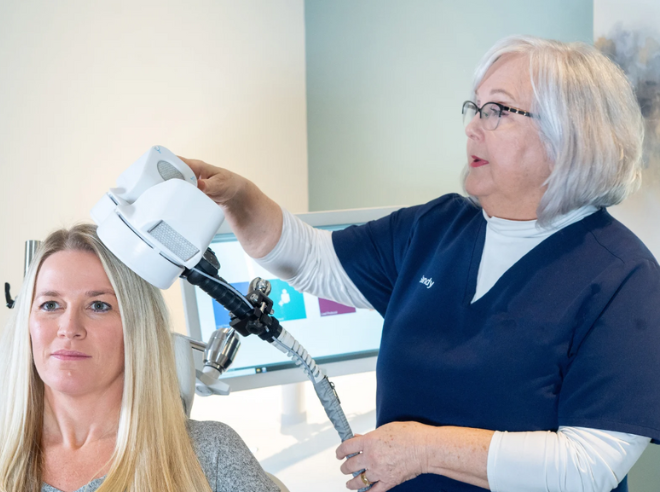
Transcranial Magnetic Stimulation
Transcranial Magnetic Stimulation (TMS) is a non-invasive, FDA-cleared therapy that uses magnetic pulses to stimulate specific areas of the brain. It's a breakthrough treatment option for various mental health conditions, including depression, anxiety, and OCD, particularly for those who haven't responded to traditional treatments like medication. TMS is safe, typically with minimal side effects, and requires no anesthesia. Each session is quick, and patients can return to daily activities immediately.
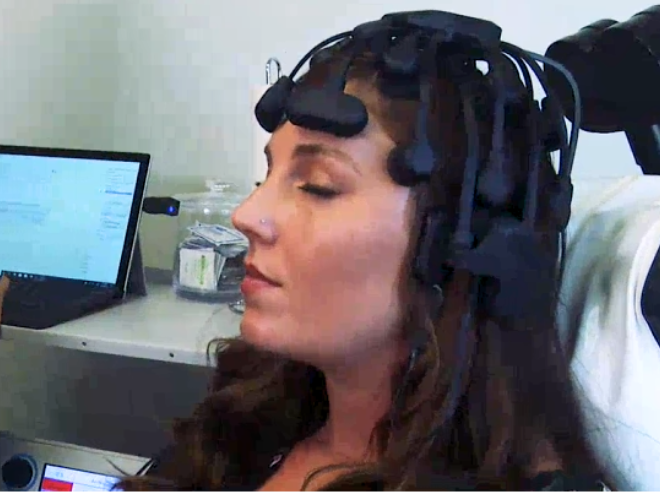
PrTMS® by PeakLogic
PrTMS® by PeakLogic is a cutting-edge, personalized form of Transcranial Magnetic Stimulation (TMS) therapy. It utilizes EEG data to tailor treatment protocols to each individual's unique brainwave patterns, enhancing effectiveness. This personalized approach ensures that the magnetic stimulation targets the areas of the brain most in need, optimizing outcomes for conditions like depression, anxiety, and more. PrTMS® offers a non-invasive, safe, and highly effective treatment option.
Independent Studies
Don't take our word for it. Explore the following independent studies on TMS therapy for depression by top universities and government agencies.
The Benefits of TMS
Wellness TMS offers a personalized approach to state-of-the-art TMS therapy, tailoring protocols for optimal, lasting results.

Personalized Treatment
PrTMS® is an EEG-guided, personalized treatment that tailors protocols to each patient’s unique brainwave patterns, optimizing effectiveness and ensuring a truly individualized approach to treating depression.
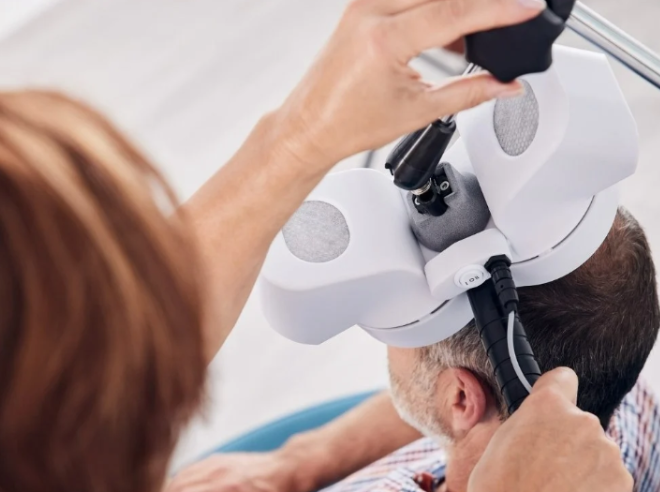
Non-Invasive Nature
TMS is a non-invasive, FDA-cleared depression treatment that's easy and relaxing, with sessions similar to sitting in a chair. It's more effective than medication for many, offering long-lasting relief without side effects.

Minimal Side Effects
TMS treatment offers minimal side effects, with most patients experiencing none at all. Compared to medication, which often has significant side effects, TMS offers a safer, more comfortable option.
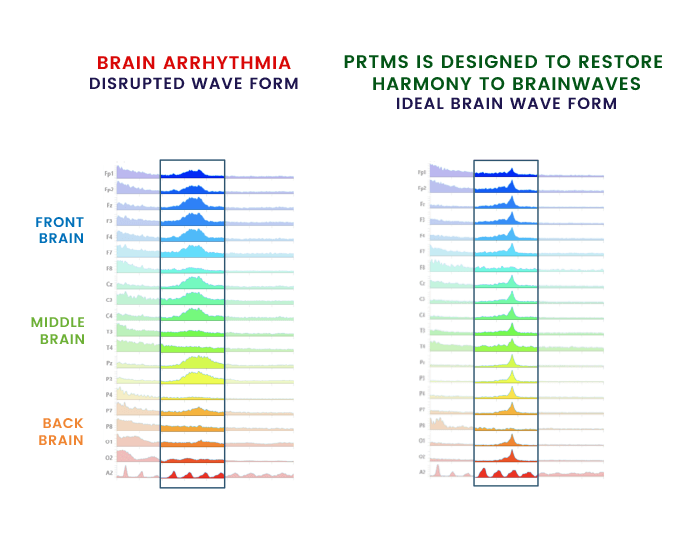
Brain Arrythmia
Brain arrhythmia refers to irregular brainwave activity, which can disrupt normal brain function and is often linked to mental health conditions like depression. These irregular patterns can lead to imbalances in brain chemistry, contributing to the persistent feelings of sadness and hopelessness that characterize depression.
Wellness TMS addresses this by using guided EEG data to identify specific brainwave patterns associated with depression. This information is then used to create a personalized TMS protocol, targeting the brain areas most affected and optimizing treatment outcomes for each individual patient.
PrTMS® Therapy at Wellness TMS
Quality treatment designed by research specialists and mental health professionals.

Peakinput® – Data Collection
Our treatment starts with an EEG that monitors a patient’s baseline alpha waves across 20 different brain zones. The EEG device records this data in under 5 minutes, requiring no wires or gels. This process offers a non-invasive, precise, and objective assessment of the brain's functions.

Peakinput Tx® – Data Analysis
The biometric data gathered in step 1 provides a detailed overview of the patient’s brain health. Based on this information, a PrTMS® treatment plan is created, customized specifically for the patient, and then reviewed and approved by a qualified PrTMS® provider before implementation.

PrTMS Therapy® – TMS Sessions
Therapy is administered according to the personalized treatment plan and the physician's discretion. After every five treatments, a new qEEG is analyzed, enabling the PrTMS® provider to monitor the patient's response and refine the treatment plan for optimal effectiveness.
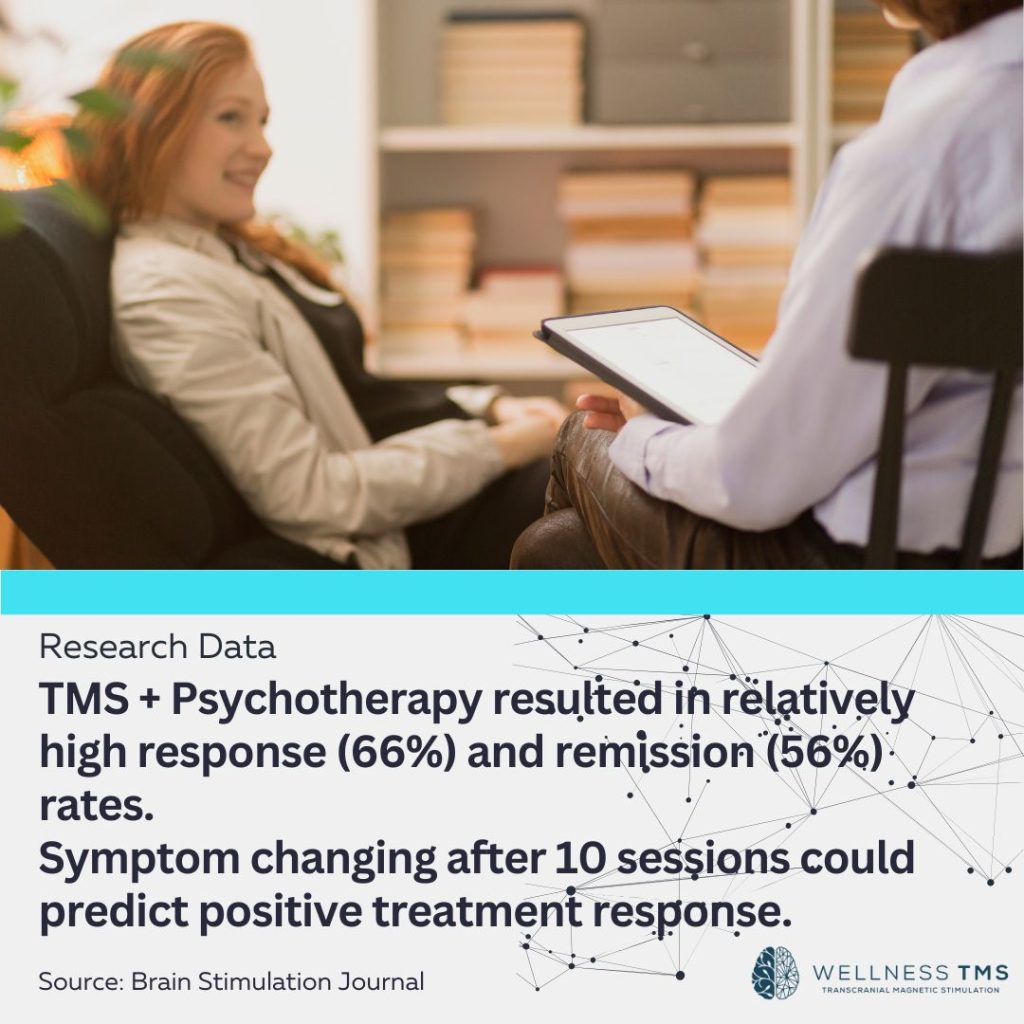
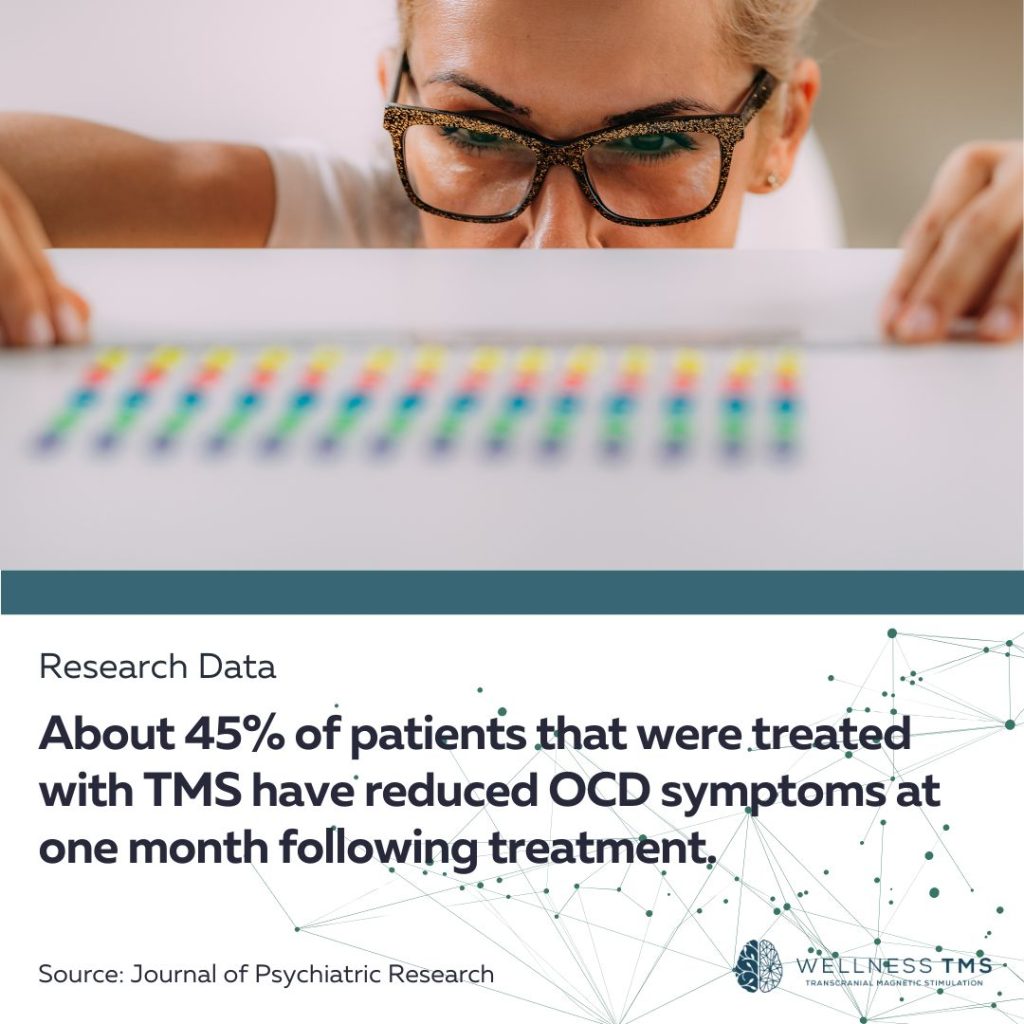
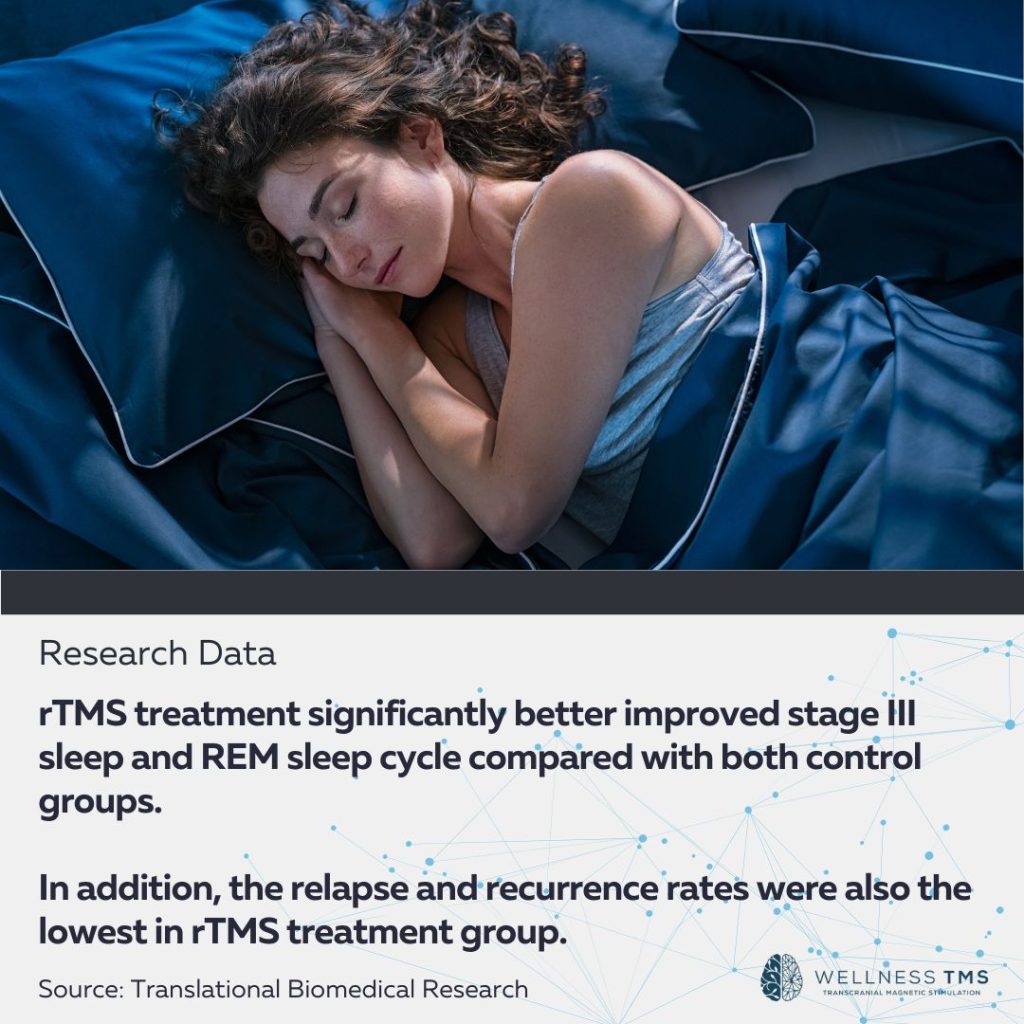
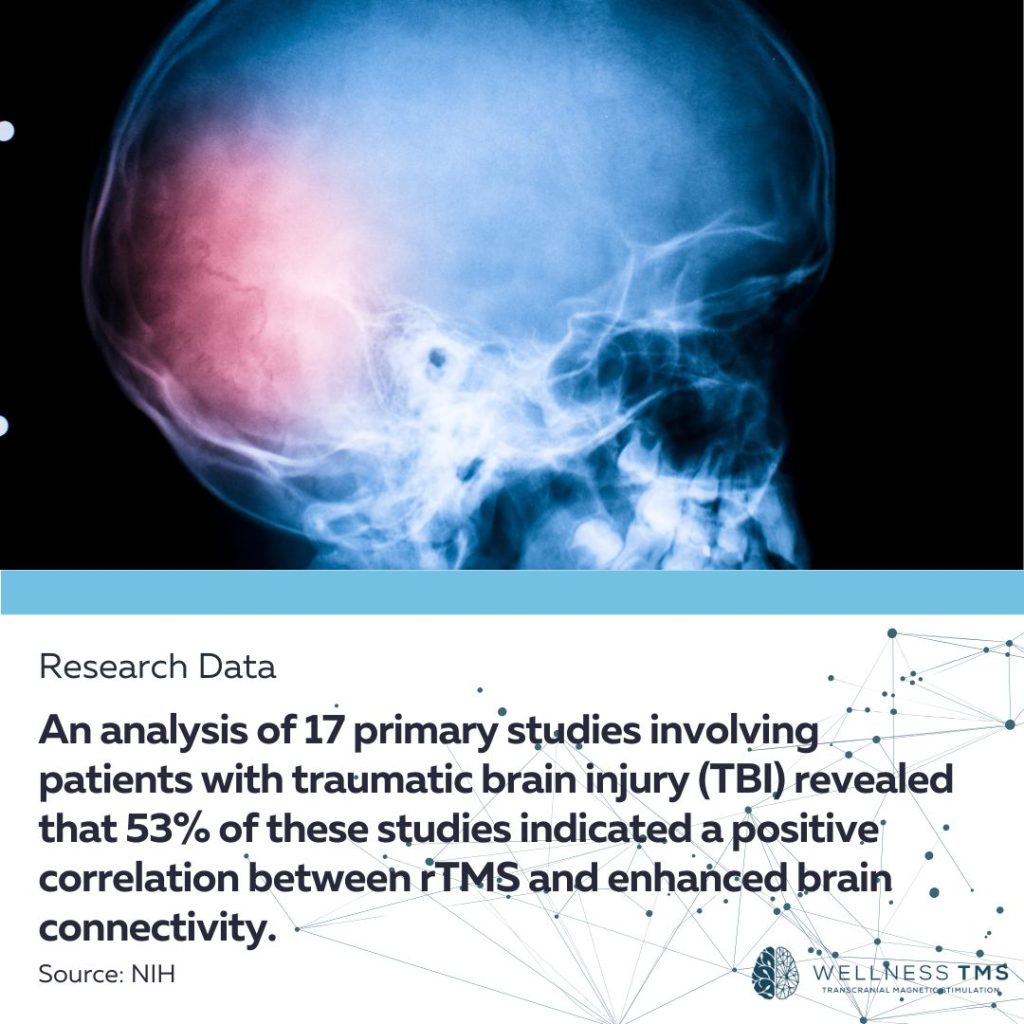
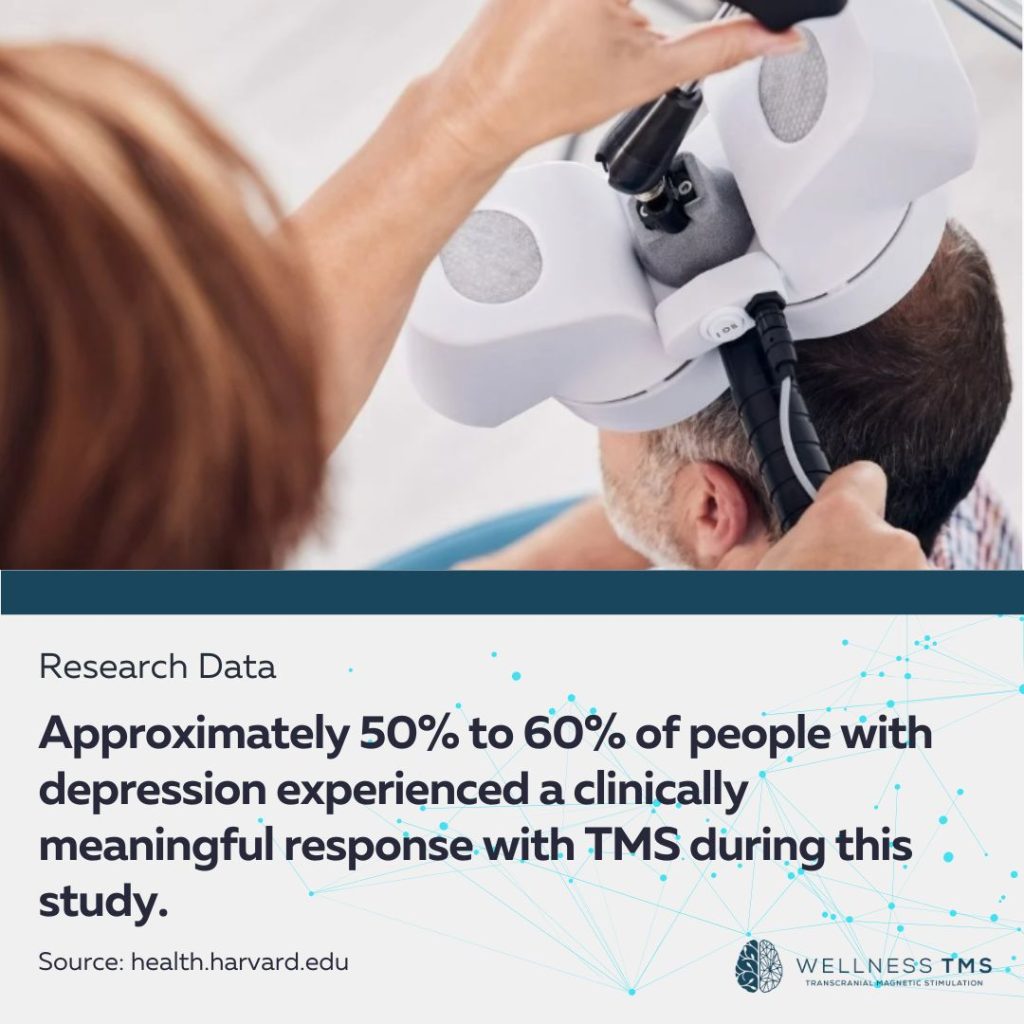
Research Snapshot
Extensive research is being conducted on the use of Transcranial Magnetic Stimulation (TMS) for treating mental health disorders such as depression, OCD, anxiety, and PTSD. Studies are exploring how TMS can modulate neural activity in specific brain regions associated with these conditions, offering a non-invasive alternative to traditional treatments.
Clinical trials have shown promising results, particularly in patients who have not responded to medication or therapy alone. Researchers are also investigating the long-term benefits of TMS, aiming to refine protocols and enhance the therapy’s effectiveness.
After over 15 years of research, TMS is proving to be very effective. But why stop now, this ongoing research continues to expand our understanding of TMS as a valuable tool in mental health care. Research for brain injuries (TBI) and COVID brain fog are also being conducted this year. The era of personalized care is here.
Insurance Accepted


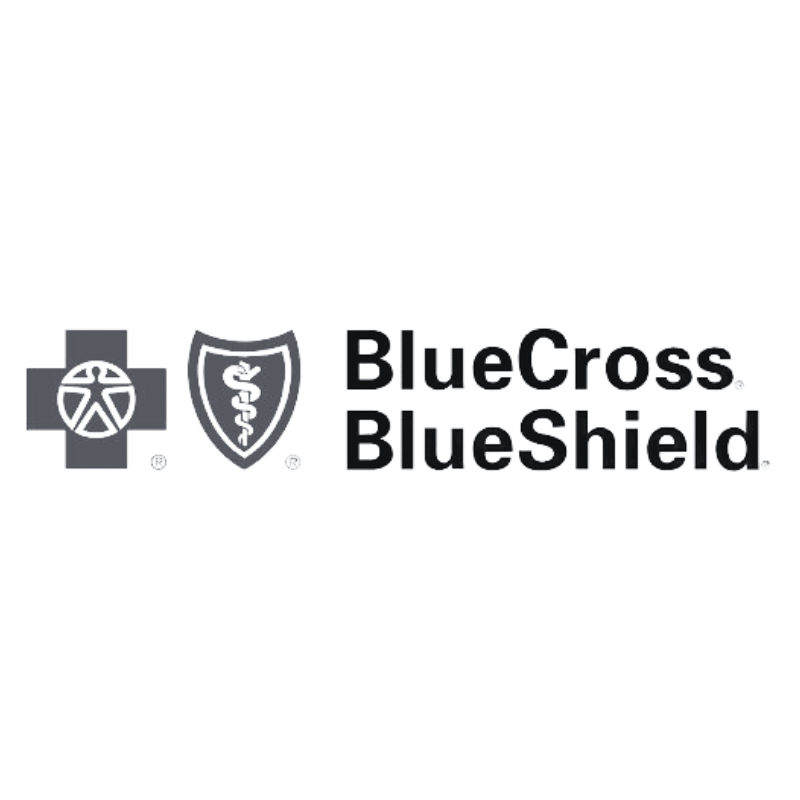


Knowledge is Power

Our Team
Meet the Wellness TMS team—a group of dedicated professionals committed to providing personalized, compassionate care and expert TMS therapy to help you achieve lasting relief from depression.
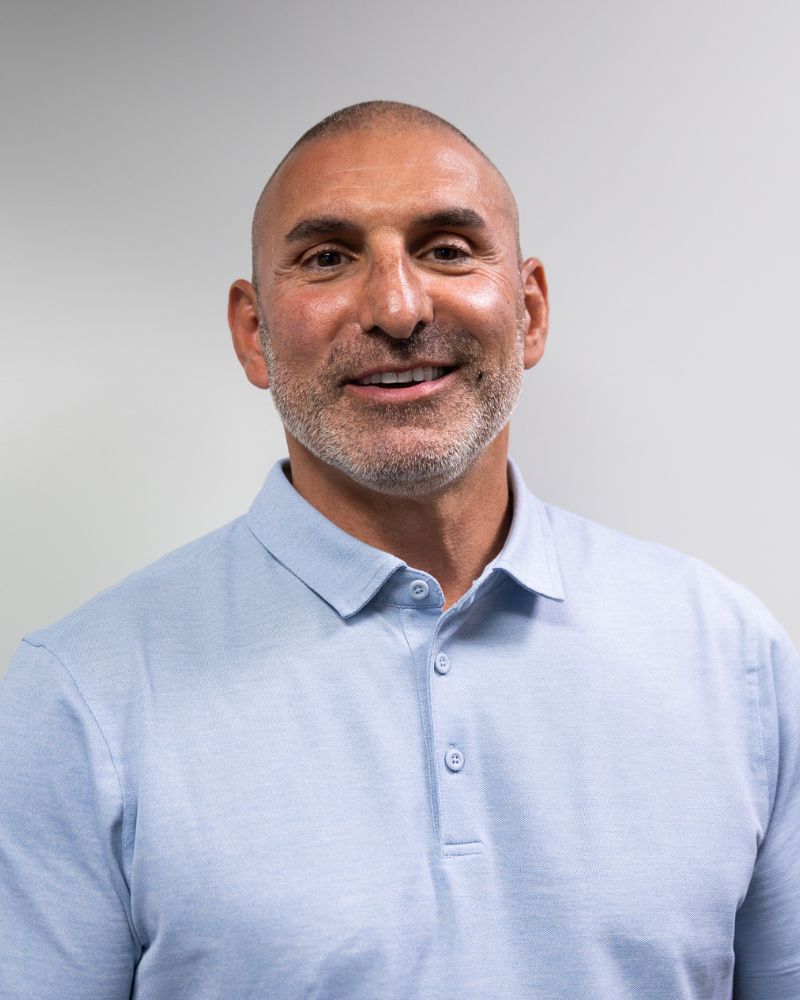
Dr. Ritesh Nath
Psychiatrist
Introducing Dr. Ritesh Nath, a compassionate psychiatrist at Wellness TMS, dedicated to innovative mental health care and patient well-being.

Jolene Chacón
Business Development Director
Meet Jolene Chacón, our Business Development Director at Wellness TMS, driving growth and strengthening connections in mental health care.

Sean Kim
Psychiatric Nurse Practitioner
Meet Sean Kim, our compassionate Psychiatric Nurse Practitioner at Wellness TMS, dedicated to transforming lives through expert mental health care.

Ali Diaz
Lead Technician
Meet Ali Diaz, our dedicated Lead Technician at Wellness TMS, ensuring exceptional patient care and treatment excellence every day.

